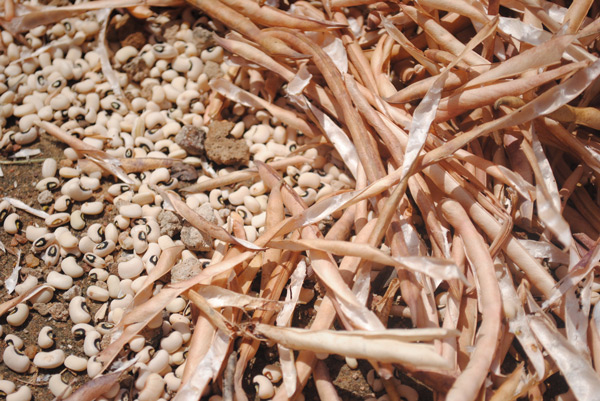
Nigeria is preparing for the commercial release of two genetically modified crops that will be the first to hit the market after the country s passage of the Biosafety Bill.
Maruca-Resistant cowpea fortified with Bacillus thuringiences (Bt cowpea) and Bt cotton are both expected to see general release sometime in 2018. Other GM crops in the pipeline include Nitrogen Use Efficient, Water Use Efficient and Salt Tolerant (NEWEST) rice, Africa Biofortified Sorghum (ABS), Bt maize, herbicide-tolerant soybeans and virus-resistant cassava enhanced with iron and zinc.
As the commercialization process moves forward, Nigerian seed companies are preparing to bring the new seeds to the nation s farmers.
Dr. Rose Gidado, the assistant director of the National Biotechnology Development Agency (NABDA), told the Alliance for Science that domestic seed companies are determined to shape the future of GM seeds in Nigeria.
When GM seeds are finally commercialized, of course our indigenous seed companies will have a very key role to play, Gidado said. Even if foreign seed companies are going to be part of the process, they will have to work hand in hand with our local companies.
Gidado said Nigerian seed companies would be wise to look at the partnership that Indian firm Maharashtra Hybrid Seeds Co. (Mahyco) entered into with Monsanto, in which the multinational giant s insect-resistant technology was inserted into a hybrid cotton developed by Mahyco. The equal joint venture Mahyco-Monsanto Biotech sublicenses Bt cotton technology throughout India.
That kind of partnership is what is likely to play out in Nigeria, Gidado said.
That approach is certainly not without its problems, however. An Indian watchdog organization accused Mahyco-Monsanto Biotech of monopolistic practices in 2016, setting off a battle between the joint venture and the Indian government that saw Monsanto withdraw an application for new GM cotton seeds in India. An investigation by the Competition Commission of India into Monsanto s practices is still ongoing.
Despite the complications of the Mahyco-Monsanto deal, Gidado said it can still serve as a model for Nigerian seed companies.
The Mahyco hybrid is a very good one, it gives very strong yields. Today Mahyco has grown very strong; it is everywhere in Africa, she said.
Gidado, who is also the Nigerian country coordinator for the Open Forum on Agricultural Biotechnology (OFAB) in Africa, said that talks are already underway with local seed companies about the multiplication and distribution of the coming GM seeds.
We re already taking steps and entering into dialogue with them, telling them about the science behind the technology and how they can take part in development. There s nothing stopping Nigerian seed companies from taking over and playing the lead role in this, she said.
According to the deputy director of the National Agricultural Seeds Council s research department, Bensarah Aromolaran, Nigeria s National Biosafety Committee has begun approving local seed companies to participate in seed multiplication when the GM varieties are commercialized.
The technology will be driven by Nigerians. However, the market is an open one, so when the foreign seed companies bring in their own high-tech seeds, I am sure they ll have a level playing field, Aromolarn said.
Stephen Yakubu-Atar, the chief executive director of Nigerian-based company Da-Allgreen Seeds Ltd, noted that although genetic modification is a foreign technology, local seed companies are already positioning themselves as active participants in promoting the technology. He said alliances are being formed with Nigerian scientists to develop GM seeds with a view to making them accessible to farmers once they are commercialized.
Yakubu-Atar said his company is already in discussions with the Institute for Agricultural Research about the commercialization of Bt cowpea seeds. The firm is also eyeing the potential of new sorghum varieties.
It will benefit Nigerians if the seed companies in Nigeria are willing to be the link between farmers and the seeds, he said.
